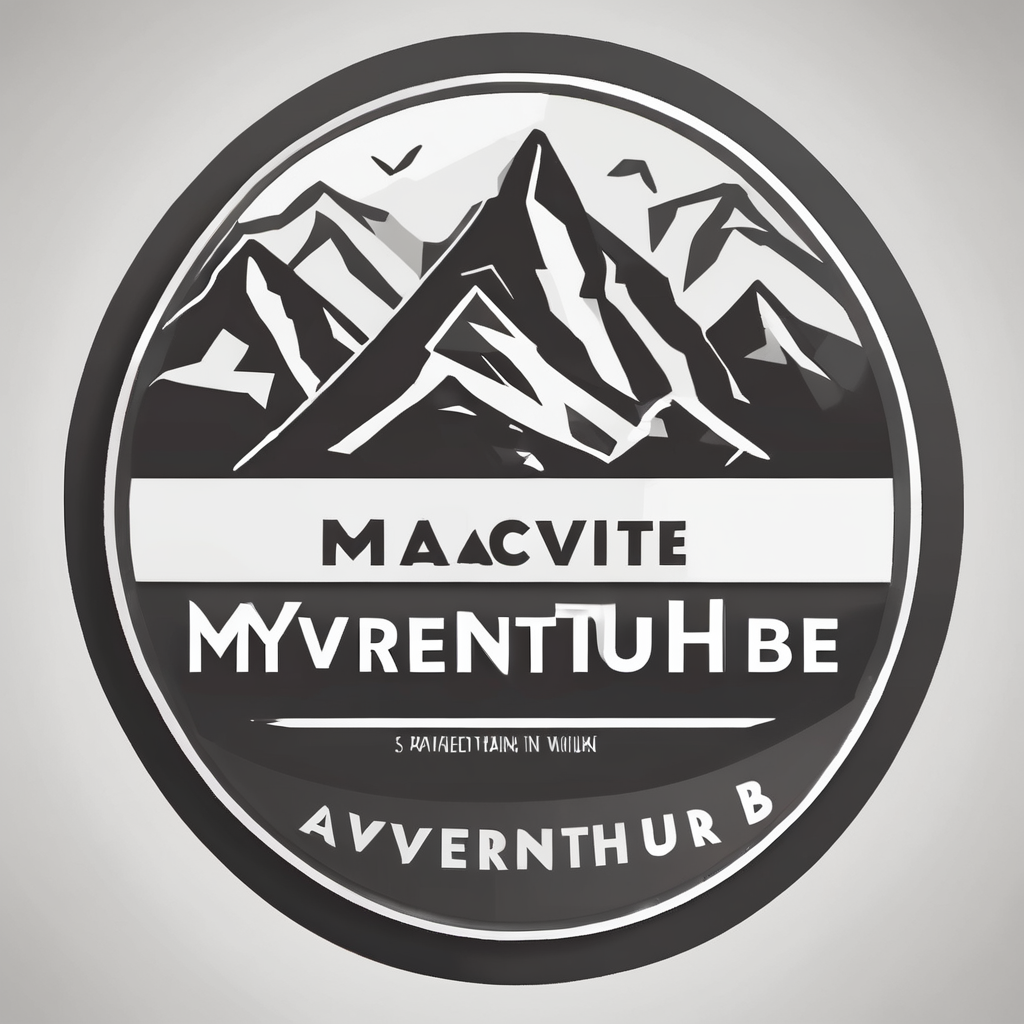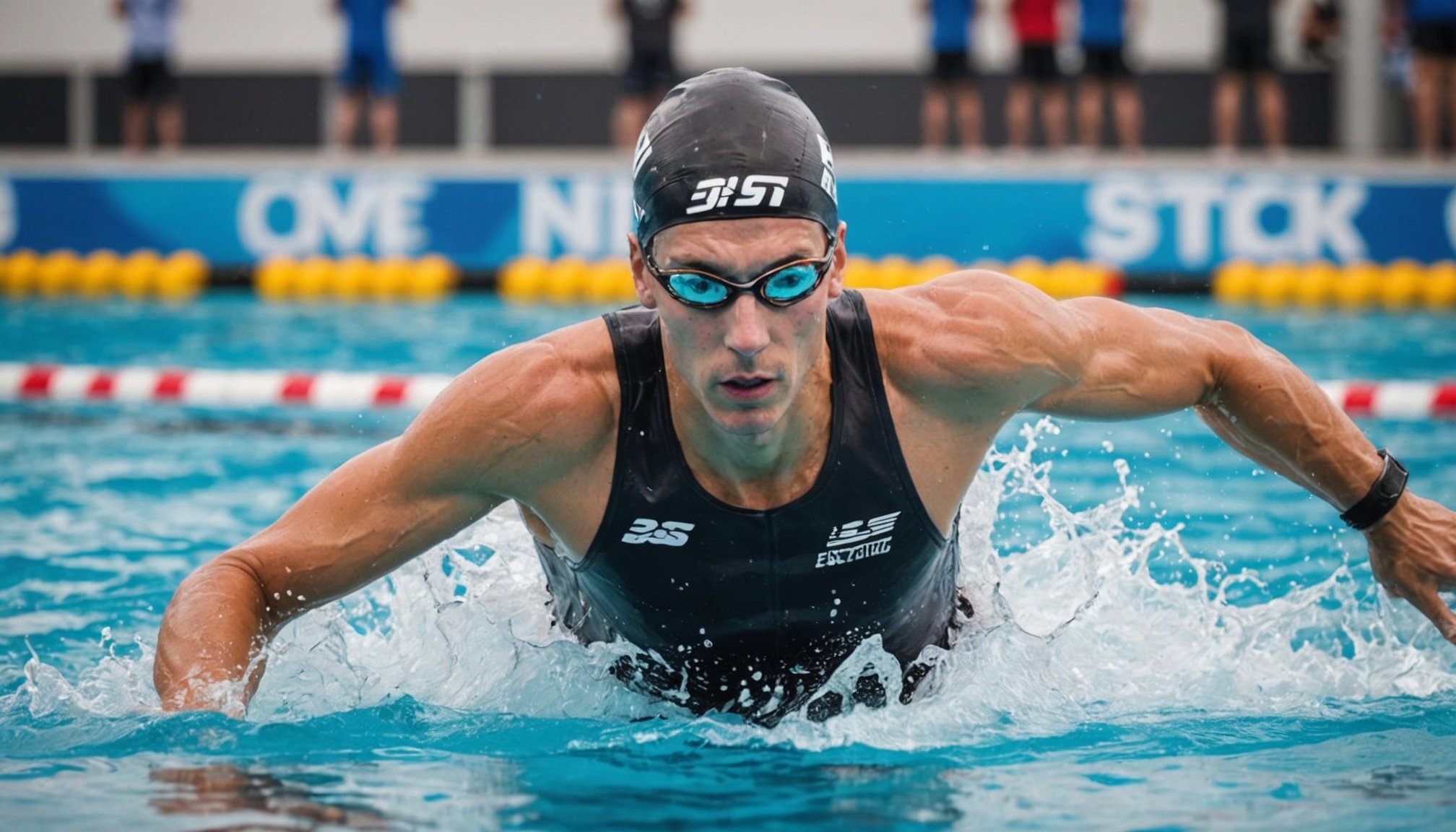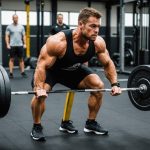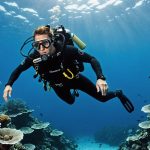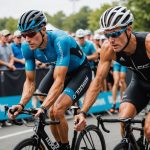Unlocking Endurance: Essential Nutrition Tips for UK Long-Distance Swimmers
Understanding the Nutritional Needs of Long-Distance Swimmers
When it comes to long-distance swimming, nutrition plays a crucial role in enhancing performance, maintaining energy levels, and ensuring proper recovery. Swimmers need a balanced diet that is rich in various nutrients to support their intense training sessions and competitions.
The Importance of a Balanced Diet
A mixed diet consisting of a variety of nutrient-dense food choices is essential for meeting the micronutrient requirements of swimmers. This includes a wide range of fruits, vegetables, whole grains, lean proteins, and healthy fats. For example, fruits and vegetables provide vital vitamins and minerals, while whole grains offer complex carbohydrates that help in sustaining energy levels during long swims[1].
This might interest you : Crafting Personalized Plant-Based Diets: Essential Strategies for UK Sports Nutritionists Working with Vegan Athletes
Carbohydrates: The Primary Energy Source
Carbohydrates are the primary source of energy for swimmers. They help in replenishing glycogen stores, which are depleted during intense swimming sessions. Carbohydrate-rich foods such as whole grains, potatoes, and fruits should be a significant part of a swimmer’s diet. Here is a detailed list of carbohydrate-rich foods that swimmers should consider:
- Whole Grains: Brown rice, quinoa, whole wheat bread, and whole grain pasta.
- Root Vegetables: Potatoes, sweet potatoes, and carrots.
- Fruits: Bananas, apples, and berries.
- Legumes: Beans, lentils, and chickpeas.
These foods help in maintaining energy levels and supporting the body’s endurance capabilities[1].
Also read : Top Strategies for UK Lacrosse Coaches to Boost Goalie Reflexes Effectively
Hydration: A Critical Component of Swimming Nutrition
Hydration is as important as nutrition when it comes to swimming. Proper hydration helps in maintaining body temperature, transporting nutrients to cells, and removing waste products. Here’s how swimmers can stay hydrated effectively:
Water and Sports Drinks
Water is the most natural and essential hydrating agent, but during long-distance swimming, sports drinks can also be beneficial. Sports drinks contain electrolytes and carbohydrates that help in replenishing what is lost through sweat. For example, a swimmer can consume sports drinks during and after their swim to maintain electrolyte balance and energy levels[5].
Practical Hydration Tips
- Monitor Fluid Intake: Make sure to drink water regularly throughout the day, not just during training sessions.
- Use Hydration Markers: Mark water bottles in 300 ml increments to track fluid intake easily.
- Balance Electrolytes: Use sports drinks or hydration tablets to maintain electrolyte balance, especially during long swims.
Energy and Nutrition During Training Sessions
During training sessions, swimmers need to ensure they have the right amount of energy to perform at their best. Here’s how they can manage their energy and nutrition:
Pre-Training Nutrition
Before a training session, it is crucial to consume a balanced meal that includes carbohydrates, proteins, and healthy fats. For example, a meal of whole grain toast with avocado and eggs provides sustained energy and supports muscle function.
During Training
For training sessions lasting less than an hour, water is usually sufficient. However, for longer sessions, swimmers may need to consume carbohydrates and electrolytes. Here are some options:
- Energy Gels: These are convenient and provide a quick burst of energy. However, they should be consumed with water to avoid dehydration[5].
- Sports Drinks: These can be used to replenish electrolytes and provide carbohydrates.
Post-Training Recovery
After a training session, recovery nutrition is critical for muscle repair and replenishing glycogen stores. Here are some recovery nutrition tips:
- Carbohydrate and Protein Ratio: Aim for a 1:4 ratio of protein to carbohydrates within 45 minutes of finishing the swim. For example, a meal of rice with chicken or a baked potato with beans and tuna[5].
- Recovery Drinks: If solid food is not immediately available, recovery drinks can be a convenient option. These drinks are pre-formulated to offer the perfect balance of protein and carbohydrate calories.
Nutrition Planning for Race Day
On race day, nutrition planning is even more critical to ensure optimal performance. Here’s how swimmers can plan their nutrition effectively:
Pre-Race Meal
The pre-race meal should be light, easy to digest, and rich in carbohydrates. For example, a meal of oatmeal with fruits and a bit of honey can provide sustained energy without causing digestive discomfort.
During the Swim
During the swim, it is difficult to consume food, so swimmers should rely on their pre-race meal and any carbohydrates consumed during the transition from swim to bike (in triathlons). Here are some tips:
- Transition Nutrition: Sip water and sports drinks during the transition to help balance the stomach and replenish fluids[5].
- Bike Segment Nutrition: This is the best time to replace calories. Swimmers should start consuming carbohydrates and electrolytes once they settle into their cycling rhythm.
Post-Race Recovery
After the race, recovery nutrition is crucial for muscle repair and replenishing glycogen stores. Here are some post-race recovery tips:
- Immediate Recovery: Consume a meal with a 1:4 ratio of protein to carbohydrates within 45 minutes of finishing the race.
- Hydration: Continue to stay hydrated by drinking water and sports drinks.
Additional Nutrition Products for Endurance Swimmers
In addition to a balanced diet, there are several nutrition products that can help endurance swimmers perform better and recover faster.
Energy Gels and Bars
Energy gels and bars are designed to provide quick energy boosts during long swims. Here are some popular options:
- Styrkr Energy Gels: These gels are engineered to be gentle on the stomach and provide fast energy[4].
- Hammer Nutrition Perpetuem 2.0: This is a long-distance energy drink that provides sustained energy and supports endurance performance[3].
Electrolyte Powders
Electrolyte powders help in maintaining electrolyte balance, which is crucial during long-distance swimming. Here are some benefits:
- Quad-Blend Electrolyte Powders: These powders provide a balanced mix of electrolytes that help in maintaining hydration and energy levels[4].
The Impact of Nutrition on Performance and Recovery
Proper nutrition has a significant impact on a swimmer’s performance and recovery. Here are some key points to consider:
Enhanced Performance
- Sustained Energy: Carbohydrates and sports drinks help in sustaining energy levels during long swims.
- Improved Muscle Function: Adequate protein intake supports muscle function and reduces the risk of injury.
- Better Hydration: Proper hydration helps in maintaining body temperature and transporting nutrients to cells.
Faster Recovery
- Muscle Repair: A balanced diet with the right ratio of carbohydrates and proteins helps in muscle repair and recovery.
- Replenishing Glycogen Stores: Consuming carbohydrates after a swim helps in replenishing glycogen stores, which is essential for the next training session.
Practical Insights and Actionable Advice
Here are some practical insights and actionable advice for long-distance swimmers:
Develop a Training Plan
- Include Nutrition: Make sure your training plan includes a detailed nutrition strategy.
- Practice Nutrition: Practice your nutrition plan during training sessions to ensure it works for you on race day.
Monitor Your Body
- Listen to Your Body: Pay attention to how your body reacts to different foods and drinks.
- Adjust Accordingly: Adjust your nutrition plan based on your body’s response.
Stay Flexible
- Be Prepared for Changes: Be prepared for changes in your body’s response on race day and have a backup plan.
Nutrition is a critical component of long-distance swimming, impacting both performance and recovery. By understanding the importance of a balanced diet, staying hydrated, and using the right nutrition products, swimmers can optimize their training and race day performance. Here is a summary of the key points:
| Nutrition Component | Description | Examples |
|---|---|---|
| Balanced Diet | Includes fruits, vegetables, whole grains, lean proteins, and healthy fats. | Fruits, vegetables, whole grains, lean proteins, healthy fats. |
| Hydration | Water and sports drinks to maintain electrolyte balance. | Water, sports drinks, hydration tablets. |
| Pre-Training Nutrition | Meal rich in carbohydrates, proteins, and healthy fats. | Whole grain toast with avocado and eggs. |
| During Training | Energy gels and sports drinks for long sessions. | Energy gels, sports drinks. |
| Post-Training Recovery | Meal with 1:4 ratio of protein to carbohydrates. | Rice with chicken, baked potato with beans and tuna. |
| Race Day Nutrition | Light, easy-to-digest meal before the race, and carbohydrates during transitions. | Oatmeal with fruits, sports drinks during transitions. |
| Additional Nutrition Products | Energy gels, bars, and electrolyte powders. | Styrkr Energy Gels, Hammer Nutrition Perpetuem 2.0, quad-blend electrolyte powders. |
By following these nutrition tips, long-distance swimmers can enhance their performance, support their endurance, and ensure faster recovery. Remember, nutrition is not just about what you eat, but also when and how you eat it.
